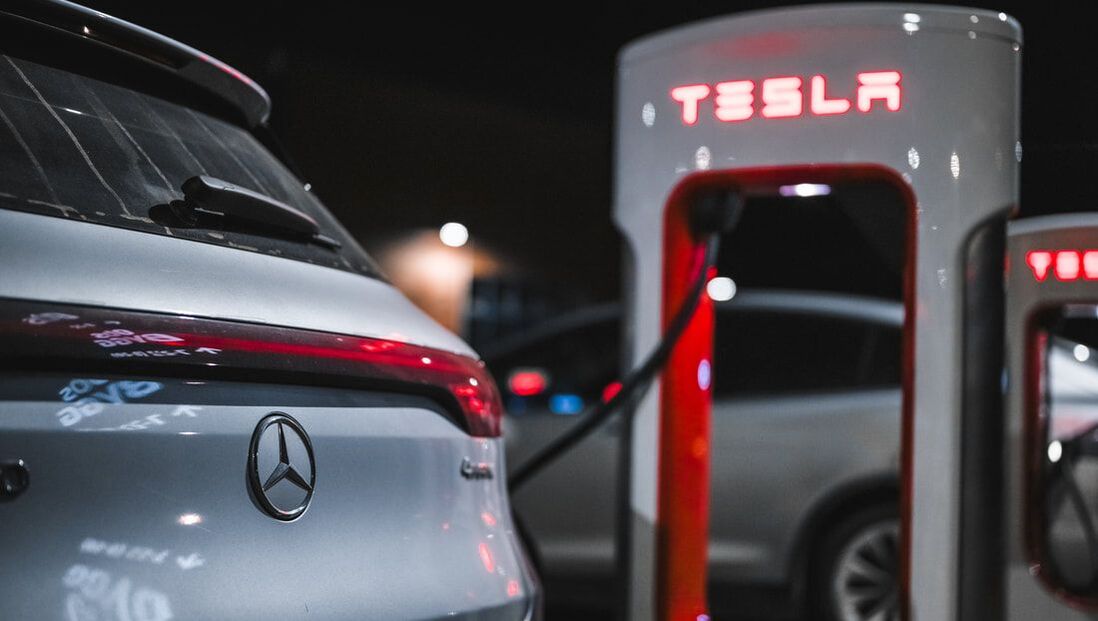On February 28, Tesla announced on its official charging account on Twitter that it had equipped select Superchargers with CCS (Combined Charging System) charging adapters, which are compatible with other electric vehicle (EV) brands. While Tesla did not disclose the exact number of chargers that have been opened to other brands, several locations in California and Buffalo, N.Y. (where the Superchargers are produced) are shown as available in the Tesla app.
To use these Superchargers, non-Tesla EV owners will need to download the Tesla app and select the CCS adapter. Through the app, they can monitor the charging rate, total charge given, and total cost of charging in real-time. However, it is important to note that not all Tesla Superchargers have been equipped with CCS adapters, and the program is still in the pilot phase with limited access. This move by Tesla to open up its Supercharger network to other brands marks a significant shift in the EV market, as it allows non-Tesla EV owners to access one of the most extensive and fastest charging networks available. With the Superchargers' fast charging speeds of up to 250 kW, non-Tesla EV owners will be able to add hundreds of miles of range in just a few minutes of charging, making long-distance travel in EVs more feasible and convenient. That being said, they have only announced plans to retrofit and build new sites for a total of 3,500 chargers with the "Magic Dock" CCS adapter by the end of 2024, and not the entirety of the more than 17,000 superchargers in North America. Non-Tesla EV owners who wish to use the Tesla Supercharger network can do so, but they will be charged a higher price per charge compared to Tesla owners. As an alternative, they can opt to sign up for a membership through the Tesla app. The monthly fee for the membership is $12.99, but it grants them access to the same lowest price per kWh offered to Tesla owners (who don't have to pay the monthly subscription).
It remains to be seen how this change will affect the nearly perfect rating that Tesla has regarding the Supercharger Network user experience. As other public fast charging networks have been plagued with issues such as broken or inoperable chargers and bandwidth problems, according to user complaints, Tesla continually ranks at the top with its seamless charging process. A 2022 survey by Plug In America revealed that the most commonly reported issue by EV owners was broken or non-working chargers. In contrast, the Tesla Supercharger network scored "significantly better than its competitors on every metric."
However, some experts have raised concerns that opening up the Supercharger network to other EV brands could negatively impact its reputation for reliable and fast charging. Guidehouse Insights analyst Sam Abuelsamid has stated that "there is a strong likelihood that if they open the Supercharger network to other vehicles, their current excellent reliability rate will decline significantly," as quoted by Reuters. By adding CCS compatibility to its proprietary hardware and software, Tesla could potentially encounter new technical issues and challenges. Nonetheless, Tesla's decision to open up its Supercharger network to other brands shows a commitment to advancing the growth of the EV market and providing a more accessible charging infrastructure for all EV owners. |
Details
Categories
All
Archives
June 2024
|
- Home
-
Learn.
-
EV 101
>
- EV Terminology
- What is an EV?
- Pros and Cons
- EV Types
- Are used EVs a good option?
- How much range do you really need?
- Real world range
- Types of charging and charging stations
- How Long Does It Take To Charge
- EV Charging Apps
- All about EV Batteries
- Regenerative Braking
- BEV System Components
- EV Maintenance
- EV Mythbusting >
- Podcast
- Newsletter
- Magazine
- Articles >
- Vehicle Reviews
- Alternative Fueling Station Locator
-
EV 101
>
- Connect.
- Experience.
- Deals
- Shop
- About Us



